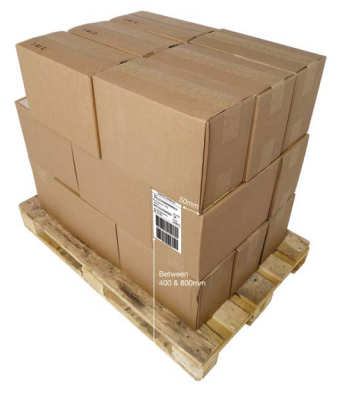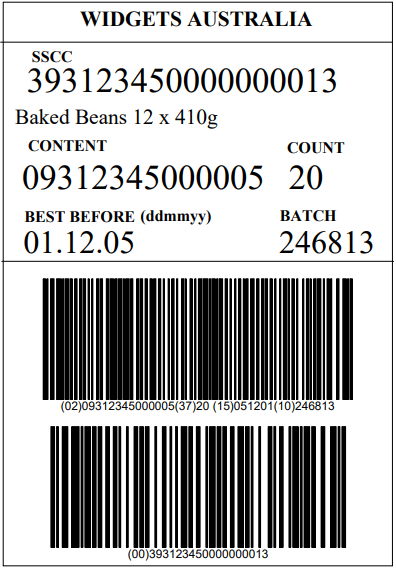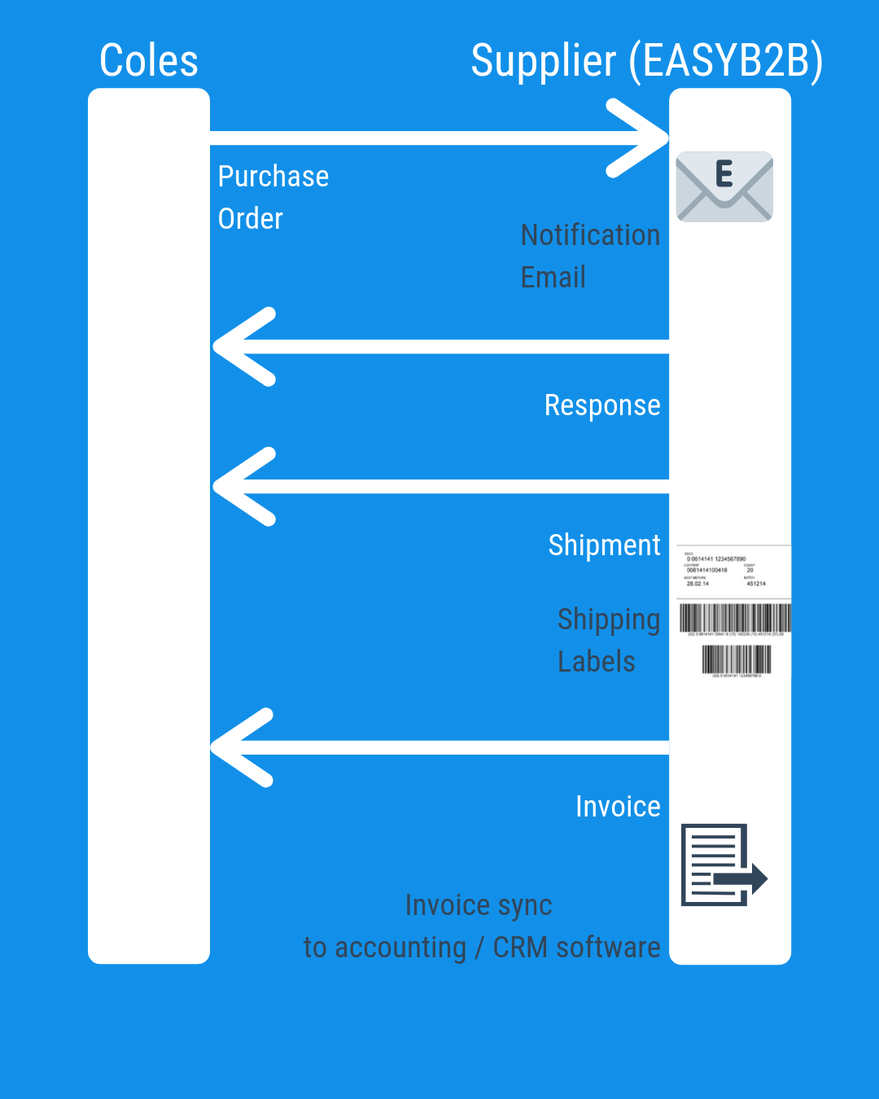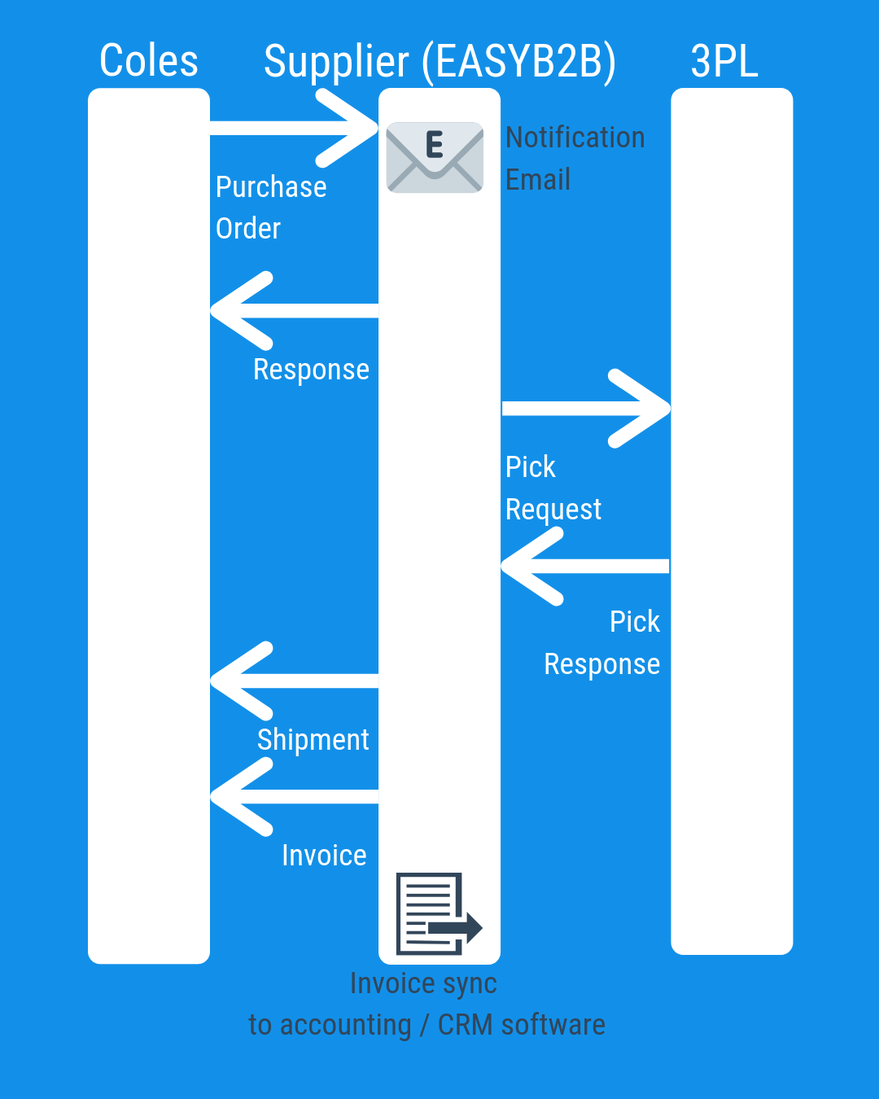
Coles B2B EDI Compliance
1. Coles EDI requirements
1.1 Documents
Coles EDI implementation requires below business documents electronically transmitted. Mandatory documents are as below.
- Purchase Order (Coles => Supplier's EASYB2B account)
- Purchase Order Acknowledgement/Response (Supplier's EASYB2B account => Coles)
- Shipment Notice (Supplier's EASYB2B account => Coles)
- Tax Invoice (Supplier's EASYB2B account => Coles)

(Reference: https://www.supplierportal.coles.com.au/csp/wps/portal/web/ElectronicTrading/ImplementingB2B )
1.2 Shipping Labels
Additionally, Coles requires every logistic unit of the goods, generally a pallet, to be labelled with Coles specific barcode (technically known as SSCC - Serial Shipping Container Code, generally known as Shipping Labels).


2. Solutions
2.1 Small business with no 3PL integration

Includes Invoice sync to supplier’s accounting / CRM software
2.2 Small to medium business with 3PL integration

Includes Invoice sync to supplier’s accounting / CRM software
3. Help me decide
3PL is an organization's use of third-party businesses to outsource elements of its distribution, warehousing, and fulfillment services.
- If you do not use 3PL => Small supplier with no 3PL integration.
- If you use 3PL only for freight => Both implementation works, however with 3PL integration, manual sharing of Pick List to 3PL becomes redundant and no need to create Shipment Notice manually.
- If you use 3PL for warehousing, packaging, distribution and fulfillment service => Small to medium supplier with 3PL integration.
- If your 3PL manages the Shipping Labels on logistic units (mostly a pallets) on your behalf => Small to medium supplier with 3PL integration.
4. Next? No obligation EASYB2B account
We understand every business. For your no-obligation EASYB2B account to experience the product, please contact us @ hello@easyb2b.com

